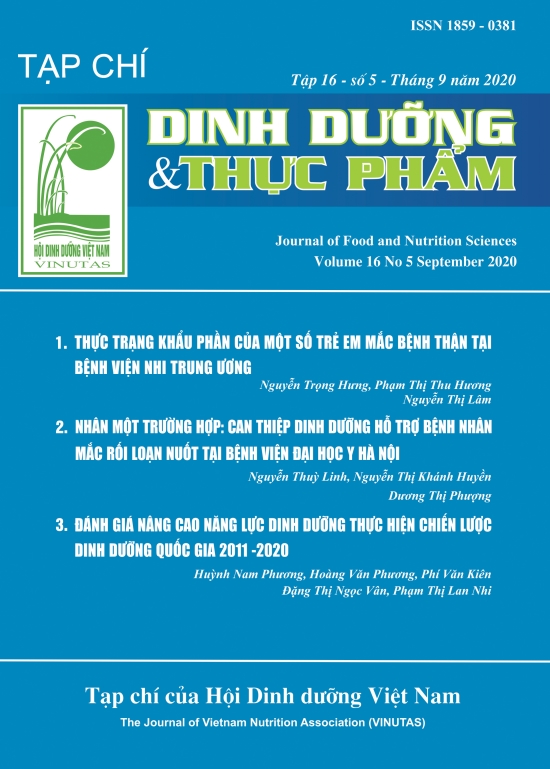RESEARCH ON THE SELECTION OF THE BACTERIAL STRAINS ISOLATED FROM PEANUT ROOT NODULES FOR HIGH TREHALOSE-BIOSYNTHESIS ABILITY
Main Article Content
Abstract
In order to find out a bacteria source which has a high ability to produce trehalose for
the application in the production of trehalose by biological method, bacteria in peanut
nodules in Vietnam were isolated and selected. Bacteria were isolated on YEMA with
Congo red added, and assessed for the ability to synthesize trehalose using trehalose Kit
K-TREH 07/17 (Megazyme). 30 bacterial strains were obtained from peanut nodules.
Results of the selection showed that 8/30 strains have ability to biosynthesize trehalose.
Among them, the strain L4.2 had the highest ability in trehalose production, achieving
5.474 mg/100ml of culture medium. Study on physiological characteristics of the strain
L4.2 showed that: their colonies were round, white and turbid, with the size of 2-4 mm;
their cells were rod, Gram positive, and aerobic. Identification of this strain by 16S rRNA
gene sequencing followed by comparison of the obtained sequence with known sequences stored in NCBI database showed that L4.2 could be recognized as Mycolicibacterium
neoaurum with 99.72 % similarity. GenBank code is MT379556. Therefore, L4.2 could
be named as Mycolicibacterium neoaurum FIRI L4.2. The detection of Mycolicibacterium neoaurum FIRI L4.2 which has the ability to synthesize trehalose among isolated bacteria from peanut nodules in Vietnam contributed to the diversity of microbial resources
to be applicable for the production of trehalose by biotechnological method.
Keywords
Identification, Mycolicibacterium neoaurum, peanut root nodules, isolation, selection, trehalose
Article Details
Similar Articles
- Thuy Dzung NGUYEN, Khanh Thu TRAN, Trong Hung NGUYEN, Thi Hue VU, Minh Huong NGUYEN, Quoc Chinh LUONG, Thi Dzung PHAM, NUTRITIONAL STATUS OF PATIENTS BEFORE STOMACH SURGERY AT THAI BINH PROVINCE GENERAL HOSPITAL IN 2019 , Vietnam Journal of Nutrition & Food: Vol. 18 No. 2E (2022)
You may also start an advanced similarity search for this article.


